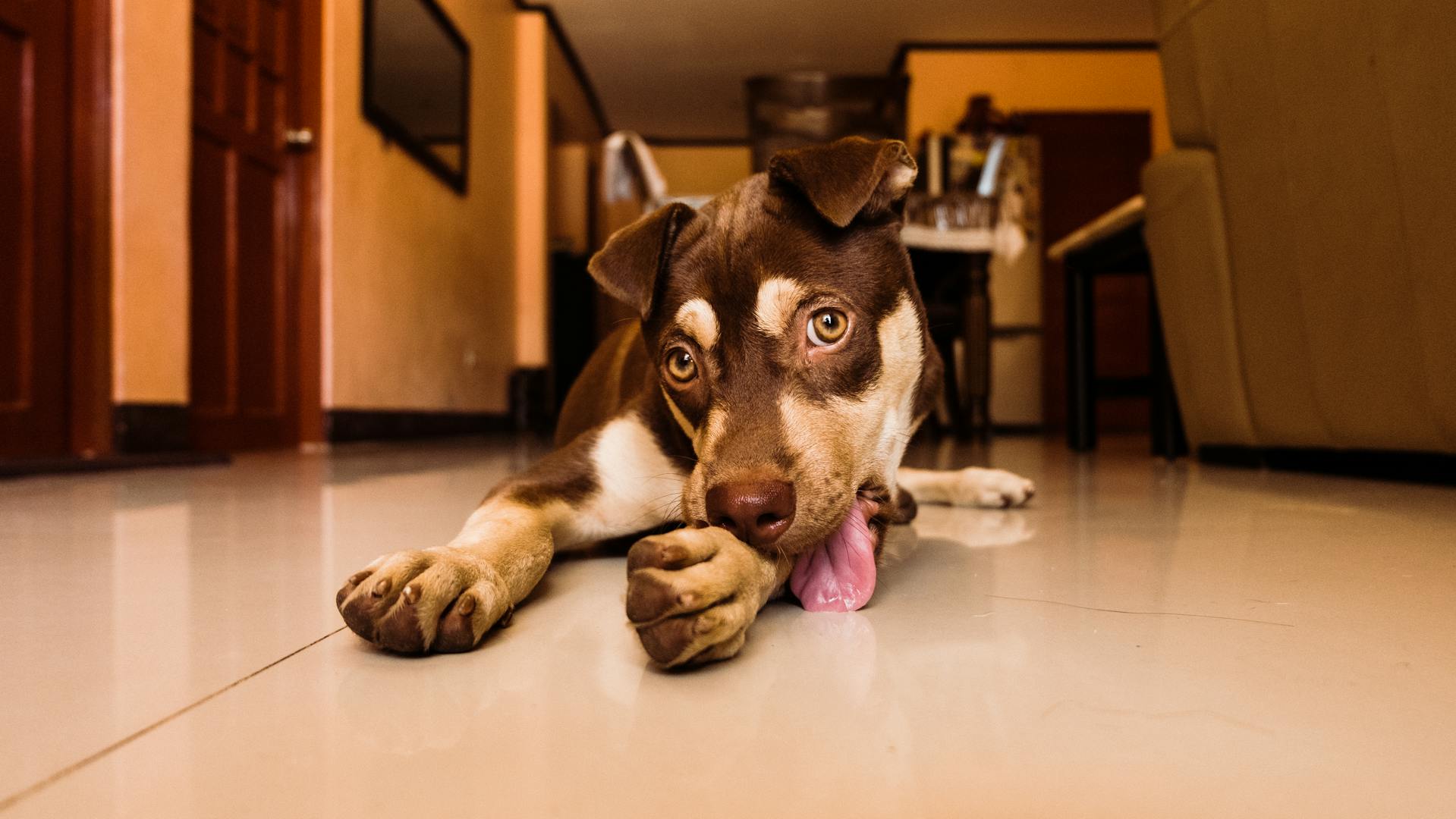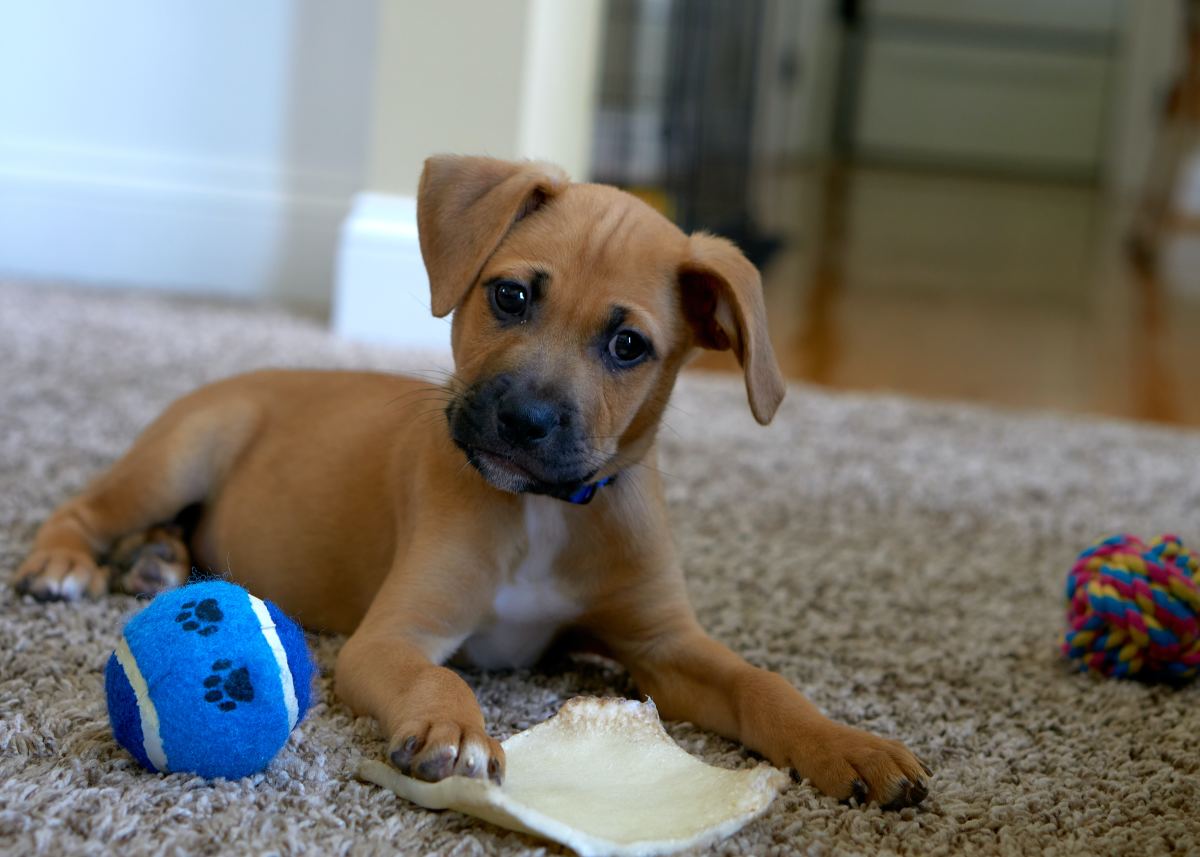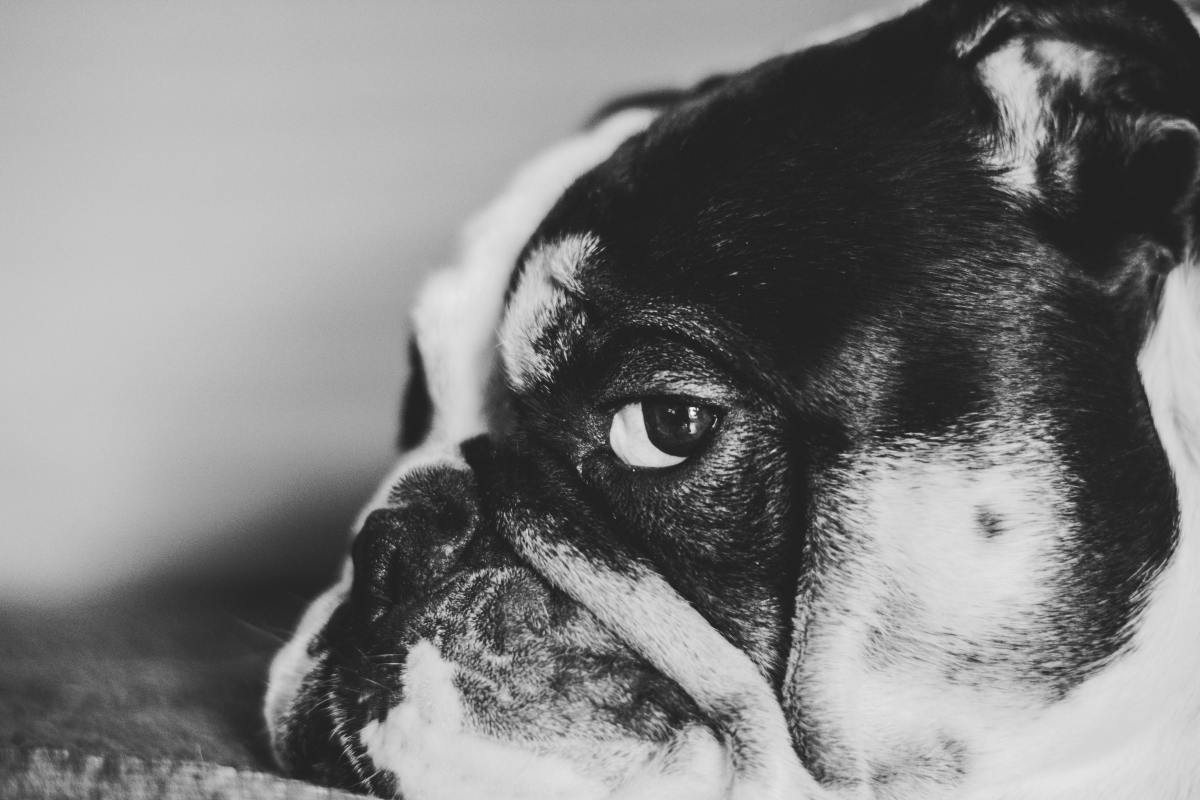Help! My Dog Is Licking His Paws a Lot
If you’re reading this, you may be concerned about your dog licking his paws more frequently than normal. Dogs naturally lick their paws to soothe themselves and alleviate stress or to help them unwind and drift off to sleep. A little paw cleaning is perfectly natural, but when it becomes a habit, something more could be going on. They may be addressing discomfort, itchiness, or soreness because of arthritis, injury, allergies, or an infection. Let’s look at some common causes and tips to improve your dog’s health.
Common Reasons a Dog Licks Its Paws Often
- Allergies
- Dry Skin
- Minor Injuries or Irritants
- Stress or Boredom
Allergies
Unfortunately, allergies are a common culprit behind paw licking. And they often show up in ways we might not expect. For instance, dogs often react to sneezing or having watery eyes by nibbling or biting on their feet. Seasonal pollen, dust, mold irritants, or even food intolerance could play a part.
Suppose you notice your pup gnawing his feet in certain seasons or right after meals. That scenario might tell you he’s feeling itchy because of an environmental or food allergy. Everyday substances like freshly cut grass or dust can stick to paws and trigger strange reactions. Your pet might instinctively chew for relief—even if it’s only a temporary solution.
Dry Skin
Just like humans, dogs can suffer from dry skin too. And their paws are particularly susceptible to this problem. Cold weather, harsh cleaning chemicals, or too many baths can strip away the natural oils. The result? Rough and cracked skin.
If the licking behavior tends to ramp up during colder months or after you clean the house, dry air might be a contributing reason. Licking can be a dog’s way of coping with all kinds of itchiness or irritability.
Minor Injuries or Irritants
Since our canine companions are naturally curious and active, they can quite easily suffer small cuts, scrapes, or splinters on their paws. So when they lick them, it can be their way of taking care of those little injuries.
Is the dog focusing on one paw more than the other three? It could be something annoying, like a burr or a small thorn. Take a moment to check his pads closely (and carefully) for anything that might be bothering him.
Stress or Boredom
It’s easy for dogs to develop certain quirky habits when they’re bored or stressed. Excessive licking, for instance, can be comforting for many animals because it gives them something interesting to do (or a way to relax).
Changes in surroundings—like a new family member, moving to a new house, or when the cat is acting up, for example—are all scenarios that can create stress. Some pups use licking as a coping mechanism for nervousness or anxiety. If you think boredom might be a factor, try introducing new toys, more exercise, or interactive playtime to their routines. All these options can keep them happily engaged.
When Should I Be Concerned?
A little paw licking here and there is usually normal. But if your dog is licking and drawing relentlessly, it’s worth taking a closer look. Some dogs may lick their paws excessively because something is wrong, like pain or an injury, or they have behavioral problems. Here are some signs of a more serious issue:
- Constant licking without stopping
- Red or swollen paws
- Hair loss around the paw area
- Sores or raw spots
If you catch one or more of these signs, it’s time to call your veterinary clinic. Long-term licking can sometimes mean a risk of secondary infections (which can make your pup feel very uncomfortable).
How to Stop My Dog From Paw-Licking?
After you’ve determined what’s causing the issue, you can work with your vet to improve your dog’s condition. Some home remedies can soothe a dog’s itchy paws if the licking seems to be linked to minor skin irritation, dryness, or other sensitivities.
Here are a few other ways to keep itchy dog paws at bay:
- If you suspect food allergies, try switching to limited-ingredient or hypoallergenic foods. Some sensitive pups react to ingredients like chicken or grains. So testing them on a limited-ingredient diet may improve symptoms if allergies are the problem.
- Hot pavement and icy sidewalks can hurt paws! Dog booties or waterproof paw balms can make a significant difference.
- Gently cleaning your dog’s feet after they’ve been outside will help. You’ll be able to remove irritants like pollen, dirt, or salt from the roads.
- Trimming the hair between their sore pads will prevent debris buildup. Doing this can help keep their delicate paws free from such irritating substances.
- To prevent boredom-driven licking, consider purchasing some new toys and puzzles and engaging in more playtime to keep their minds sharp and spirits high.
Final Note
Please know that a little paw-licking is usually nothing to worry about. But when it becomes a daily routine, it can be a dog’s way of signaling that something’s up, and they’re not happy. From itchiness caused by environmental allergies to stress, dry skin, or boredom, figuring out the “why” behind your dog’s behavior can help you find the “what” to do about it.
Simple remedies and preventive measures can keep your pup comfortable and happy. After all, when our pets feel good, life is a lot more fun for everyone involved!
Sources and Further Reading
- Why Do Dogs Lick and Chew Their Paws? – PetMD – Here, PetMD explains that frequent paw licking usually isn’t an emergency, but if it involves bleeding, swelling, limping, or pain, a vet visit is advised.




